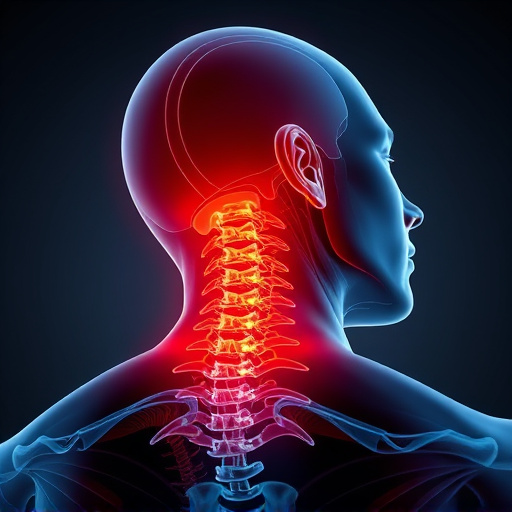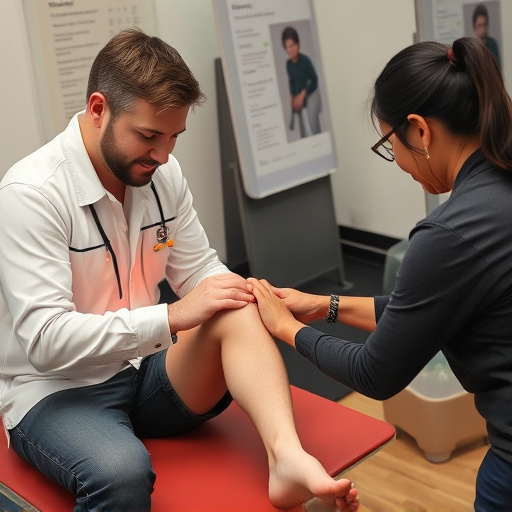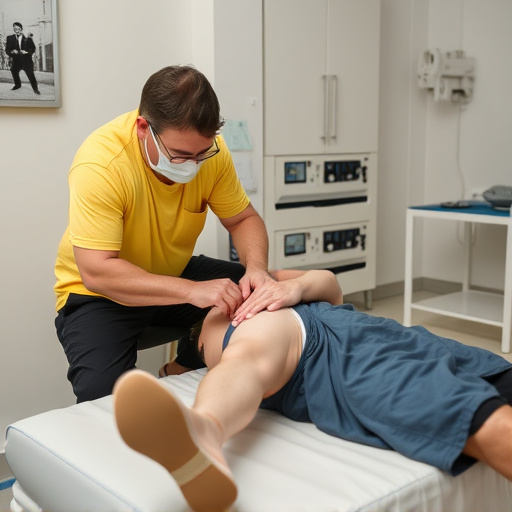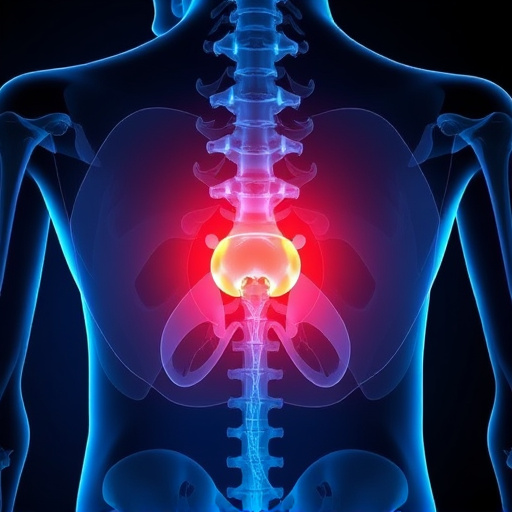Veterans with service-related injuries should prioritize specialized military injury treatment through the U.S. Department of Veterans Affairs (VA), which offers comprehensive healthcare services tailored to their unique needs, including advanced therapies like shockwave therapy. Personalized programs cover physical and mental health, from physical therapy and chiropractic care for conditions like lower back pain, to mental health support groups, counseling, and medication management for PTSD and psychological injuries. Integrating these services enhances veterans' independence, mobility, and overall quality of life.
Veterans who have sustained service-related injuries deserve access to comprehensive and effective military injury treatment. This guide aims to empower veterans by providing insights into their benefits, navigating quality medical care, and exploring recovery options. Understanding your entitlements and available resources is crucial for a smooth transition back to civilian life. With the right support, veterans can overcome challenges and achieve long-term health and wellness through optimal military injury treatment.
- Understanding Your Military Injury Benefits
- Accessing Quality Medical Care for Service-Related Injuries
- The Road to Recovery: Veterans' Treatment Options
Understanding Your Military Injury Benefits

Many veterans are eligible for a range of benefits when it comes to military injury treatment. Understanding these entitlements is crucial for ensuring access to quality care and support during your recovery journey. The U.S. Department of Veterans Affairs (VA) offers comprehensive healthcare services tailored specifically to meet the unique needs of those who have served in the military. This includes specialized treatments for various injuries, with a focus on both physical and mental health.
One key aspect to consider is functional rehabilitation, which plays a vital role in helping veterans regain mobility and independence after a military injury. Programs like these often include personalized therapy sessions aimed at sciatica relief and sciatica treatment, particularly common issues among veterans. By taking advantage of these benefits, veterans can actively participate in their own healing process, fostering a sense of empowerment and improved quality of life.
Accessing Quality Medical Care for Service-Related Injuries
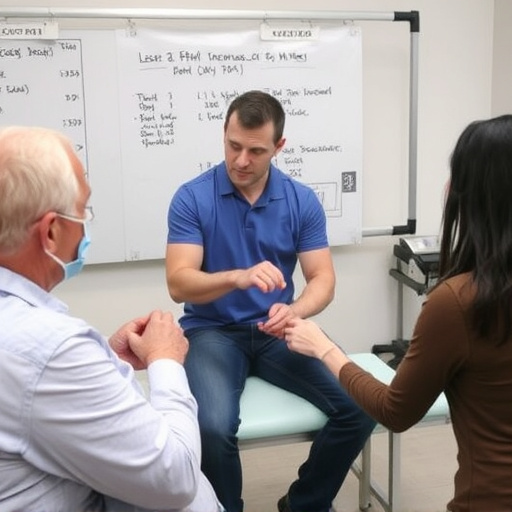
Veterans who have experienced military injuries should prioritize accessing quality medical care to ensure proper military injury treatment. This involves seeking specialized healthcare services tailored to service-related conditions, including physical and mental health issues. Many veterans’ affairs organizations offer comprehensive care programs that cater to the unique needs of military personnel, ensuring they receive top-tier treatment for their injuries.
One aspect of quality medical care is staying informed about advanced treatment options, such as shockwave therapy for pain, which has shown promise in alleviating conditions like neck pain and chronic back pain relief. These innovative approaches can significantly enhance the overall well-being and recovery of veterans, ensuring they receive cutting-edge military injury treatment tailored to their specific needs.
The Road to Recovery: Veterans' Treatment Options
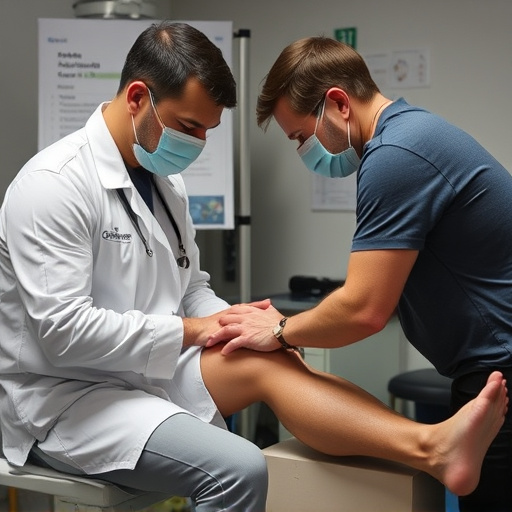
The journey to recovery for veterans with military injuries is a critical aspect of their overall well-being and should be approached with comprehensive options tailored to their unique needs. Veterans’ healthcare systems offer a range of treatment approaches, ensuring that service members receive the best care possible. From traditional medical interventions to alternative therapies, the road to recovery is multifaceted. For instance, physical therapy and chiropractic care have proven effective in managing conditions like lower back pain, a common military injury. These treatments focus on strengthening muscles, improving flexibility, and alleviating pain, enabling veterans to regain mobility and perform daily tasks without hindrance.
Additionally, mental health services play a pivotal role in the recovery process for many veterans dealing with post-traumatic stress disorder (PTSD) or other psychological injuries. Support groups, counseling, and medication management are valuable tools that aid in addressing the emotional toll of military service. By combining physical and mental health care, veterans can navigate their recovery paths efficiently, ensuring they regain independence and a higher quality of life.
Veterans who have suffered service-related injuries can navigate their path to recovery by understanding their benefits and accessing quality medical care. The options available, from traditional treatments to innovative therapies, empower veterans to take control of their health. By familiarizing themselves with the resources at their disposal, they can ensure a comprehensive approach to military injury treatment and focus on rebuilding their lives.




